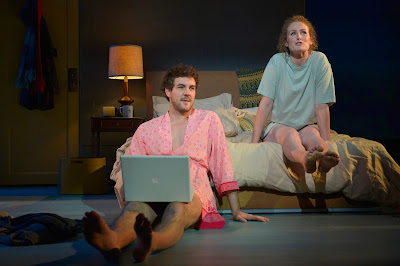Altruism versus Egoism in The Hard Problem
“Since the very beginning, Tom Stoppard has written about what is the nature of goodness and is there such a thing as value,” says The Hard Problem director Carey Perloff. “What are human values? How do we express ourselves as human beings? Is there such a thing as goodness, as altruism?”
Altruism is at the center of Stoppard’s The Hard Problem, running at The Geary Theater through November 13. The term altruism—from the Latin alter, meaning “other”—was coined by French philosopher Auguste Comte in the nineteenth century. He wanted to create a religion based on a belief in science, rather than God. To Comte, to be altruistic meant simply to live for others.
 |
| Dan Clegg and Brenda Meaney in A.C.T.'s 2016 production of The Hard Problem. Photo by Kevin Berne. |
In The Hard Problem, Spike uses biologist Gerald S. Wilkinson’s research into vampire bats to explain altruism to Hilary. Wilkinson noticed that the bats display reciprocally altruistic behavior. The bats go hunting at night, but some are not successful and return home hungry. Other bats that have been successful will regurgitate some of their food and feed it to the hungry bats. Wilkinson’s theory was that the successful bats do this because they want to ensure that, when they go hungry, their fellow bats will feed them in return. But can this be called altruism, if the bats are ultimately being altruistic for their own gain?
This debate between altruism and egoism is particularly interesting for neuroscientists studying how the brain creates things like morality, empathy, and consciousness. “We know so much about how the brain functions, but the more we know, the more mysterious these questions become,” says Perloff.
A.C.T.’s production of The Hard Problem runs through November 13. Click here to purchase tickets through our website. Want to learn more about altruism, consciousness, and Stoppard? Click here to purchase Words on Plays, A.C.T.’s in-depth performance guide series.

